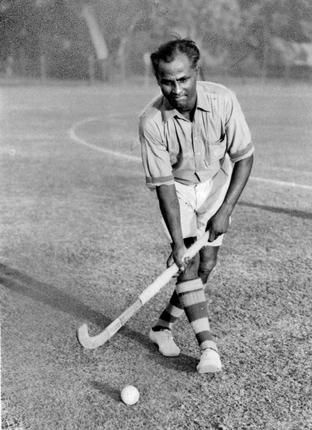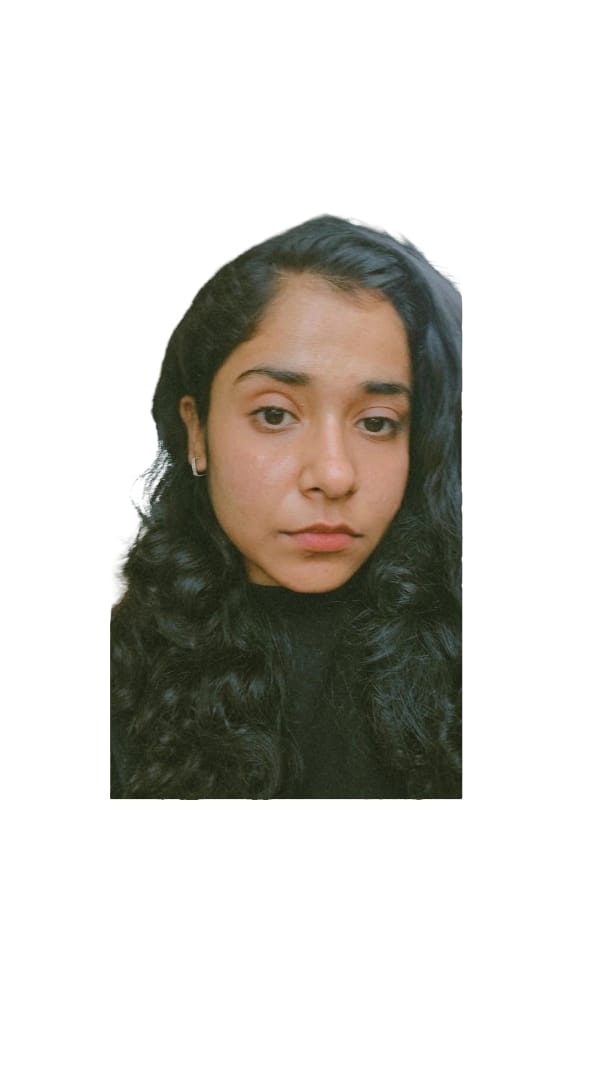Just as Don Bradman holds a prominent place in cricket, Dhyan Chand holds the same in hockey. Whenever there is talk about the nickname "Dada" for any player or bowler, it's understood to be about Major Dhyan Chand. Although he is no longer with us, his fame remains.
His magical gameplay was first discussed during the 1928 Amsterdam Olympics, where Major Dhyan Chand participated for the first time on behalf of India. He and his teammates gave a great performance in all the hockey matches at this Olympic. This Olympics also holds a record for hockey goals, which was a result of the combined efforts of Dhyan Chand and his teammates. Westerners were suspicious of his stick, so they had it changed during a match. However, his game remained unchanged. To this day, people all over the world know Dhyan Chand as the "Wizard of Hockey". He was a master of ball control, dribbling, and outmaneuvering opponents.
In 1928, India won its first hockey gold medal by defeating the Netherlands 3-0 in the final match. At the 1932 Los Angeles Olympics, any country that tried to stop the Indian hockey team from winning the gold medal was badly defeated. The Indian team's amazing performance, particularly by Dhyan Chand, was highlighted by their victories against Japan (2-1) and America (24-1). In the match against America, Dhyan Chand scored 8 goals and Roop Singh scored 10.
The decline of Indian hockey began at the 1968 Rome Olympics, when the team lost 0-1 to Pakistan in the final, and this condition continued to worsen. However, in the 1964 Tokyo Olympics, India had defeated Pakistan to win the gold medal.
Just as no one could control Bradman's bat, no team or defender could stop the brilliance of Dhyan Chand's stick. As runs poured from Bradman's bat, goals rained from Dhyan Chand's stick. This is why he is called the great wizard of hockey.
Today, August 29, marks the birth anniversary of this great wizard.
There is no bigger day for Indian sports than this one, which is why August 29 has been declared as National Sports Day. In his memory, various tournaments and ceremonies are held in the capital and other cities across the country. On this day in Delhi, the President of India honors players who have made memorable contributions to the country with awards such as the Arjuna Award, Rajiv Gandhi Khel Ratna Award, Dhyan Chand Award, and Dronacharya Award.
After Major Dhyan Chand's birthday was declared National Sports Day in 1995, the then Prime Minister P.V. Narasimha Rao unveiled a nine-foot-tall, four-quintal bronze statue of Major Dhyan Chand at the main entrance of the National Stadium in Delhi. Similarly, bronze statues of him have been installed at the main entrances of several other hockey stadiums, including in Jhansi.
Even though he received honors very late in his life, it seems no one paid attention to him when he was struggling financially. When he was suffering from cancer at the end of his life, he was not sent abroad for treatment. Initially, he was admitted to the general ward of the All India Institute of Medical Sciences in Delhi, but after the news was published in a newspaper, he was moved to a private ward. In the end, the government honored him appropriately. The great hockey player Dhyan Chand was born on August 29, 1905, in Allahabad. Later, his parents moved to Jhansi.
His father was Someshwar Dutt Singh. Inspired by him and through hard work, Dhyan Chand was drawn to hockey and picked up a stick at the age of seven. A few years later, he joined the famous Heroes Club in Jhansi. Influenced by his father, Dhyan Chand also joined the army at the age of 16 as a sepoy in the Punjab Regiment. In this regiment, he started practicing hockey under the supervision of Major Tiwari.
Dhyan Chand's game had such artistry that anyone who watched him play was impressed. When he advanced to attack, it seemed as if the ball was stuck to his stick. Once, during a match abroad, he was given another stick to play with because some people suspected that his stick had a magnet attached to it that would make the ball stick to it. But when he was given another stick, the same feat continued, and people became convinced that this player was truly amazing.
In 1926, Dhyan Chand went on his first foreign tour with the Indian hockey team to Australia and New Zealand. During this tour, he displayed his artistic hockey skills and made all the hockey fans there his admirers. He scored a total of 35 goals on this tour.
In the 1928 Amsterdam Olympic Games, the Indian hockey team was sent to play for the first time. Although Jaipal Singh was the captain, Dhyan Chand was the real hero. Thanks to this brave player, India won the Olympic gold medal for the first time. No one can forget the Olympic final match. On May 26, 1928, India was up against the Netherlands in the final, and four of India's key players were unwell. In such a situation, the entire burden of the team was on Dhyan Chand, and he put on a magical hockey display that stunned the opposing team and the entire stadium. India won the championship 3-0. Dhyan Chand himself scored two goals, and he also had a hand in the third goal.
At the 1932 Los Angeles Olympics, Dhyan Chand completely dominated. India defeated America 24-1. Dhyan Chand alone scored ten of these goals. Opposing teams were helpless against Dhyan Chand and his younger brother Roop Singh. This way, Dhyan Chand played a significant role in helping India win its second consecutive Olympic gold medal. His son, Ashok Kumar, also became a great hockey player and represented the country for many years. Dhyan Chand also trained the Indian hockey team for years at the National Institute of Sports in Patiala.
In 1956, he was honored with the Padma Bhushan, and a postage stamp was also issued in his honor. He also wrote a book called 'The Goal'. This great star passed away on December 3, 1979, in Delhi, leaving behind his millions of fans.
In the 1936 Berlin Olympics, Dhyan Chand was given the responsibility of leading the Indian hockey team. With his brilliant game, he also won the hearts of the Germans. Their ruler, Hitler, was also impressed by his magical game. In the final, India defeated Germany 8-1, with Dhyan Chand scoring a half-dozen goals.
After that, due to World War II, the Olympics of 1940 and 1944 could not be held, and Dhyan Chand lost the opportunity to continue his brilliance. He then retired from hockey, but his connection with the sport did not break. Under his guidance, his son Ashok Kumar also became a great hockey player.
Fortunately, as long as he lived, the star of Indian hockey shone brightly. India was the Olympic champion as long as he played. India also remained at the top of world hockey when he became a coach. India also became the Hockey World Champion in 1975, a few years before he passed away. The bad days for Indian hockey began only after he was gone.

